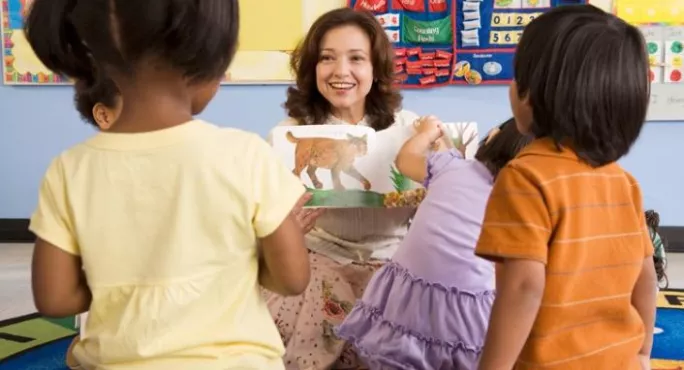- Home
- Fears that new Ofsted framework ‘narrows’ KS1
Fears that new Ofsted framework ‘narrows’ KS1

The draft Ofsted framework may push schools into narrowing the curriculum for younger children, early years experts said today.
Sue Cowley, author and teacher trainer, took to Twitter to say that the “most pressing” issue she had with the new framework was the section on the curriculum in key stage 1.
The draft framework, published for consultation yesterday, states: “It is appropriate that, in key stage 1, teachers focus on ensuring that pupils are able to read, write and use mathematical knowledge, ideas and operations. From key stage 2 onwards and in secondary education, however, inspectors will expect to see a broad, rich curriculum.”
Ms Cowley is concerned that this statement could deny children their right to a broad and balanced curriculum.
Beatrice Merrick, chief executive of Early Education, which represents early years teachers and researchers, said that it was good to see encouragement for inspectors to look beyond the data collected through the early years foundation stage profile, which is the assessment of pupils carried out by teachers at the end of Reception year.
But she was concerned about Ofsted “picking out” particular approaches, something which was beyond its remit.
“We are pleased Ofsted continues to include (as a footnote) their excellent definition of what teaching in the early years involves,” she said.
“However, there are ways in which the education inspection framework (EIF) goes beyond Ofsted’s remit, by seeming to tell schools and settings what or how to teach, in relation to reading to children, phonics, etc. The EYFS Statutory Framework should be where the curriculum is articulated by government. Ofsted’s EIF should show how inspectors will inspect against those requirements, not pick out particular aspects or approaches that are currently favoured by government but are non-statutory.”
On evaluating early years provision in schools, the draft framework suggests seven areas that inspectors will consider including: “staff ensure that the content, sequencing and progression in the areas of learning, particularly in the specific areas of reading, writing and number, and shape, space and measure, are secured” and “staff teach children to read systematically by using synthetic phonics and books that match the children’s phonics knowledge”.
Phonics is part of the current framework, which states that when looking at early years provision in schools, inspectors will consider the “quality and impact of phonics teaching”. But it is less specific in terms of other areas of learning, saying that inspectors should look at how well the activities and experiences in the curriculum meet children’s needs.
In the draft framework, the watchdog adds that research into the curriculum has shown that some schools narrow the curriculum available to pupils, particularly in key stages 2 and 3, with a disproportionately negative effect on the most disadvantaged pupils. It states that all pupils in maintained schools are expected to study the national curriculum subjects, religious education and age-appropriate sex education.
An Ofsted spokesperson said: “Of course we are not suggesting that schools narrow their key stage 1 curriculum. But pupils can only access a broad, rich curriculum if they have the literacy and numeracy skills to do so. Children who fall behind in reading and mathematics early on often struggle to catch up later, setting them at a disadvantage throughout their entire education, and into adult life.
“Many children, especially those from disadvantaged backgrounds, lack literacy and numeracy skills when they start school. Schools need the flexibility at this stage to prioritise these fundamental areas early on, so that every child has the best chance of a good education. That doesn’t mean schools should stop teaching young children subjects like music, art or PE, that all contribute to a full school experience.”
Keep reading for just £1 per month
You've reached your limit of free articles this month. Subscribe for £1 per month for three months and get:
- Unlimited access to all Tes magazine content
- Exclusive subscriber-only stories
- Award-winning email newsletters



